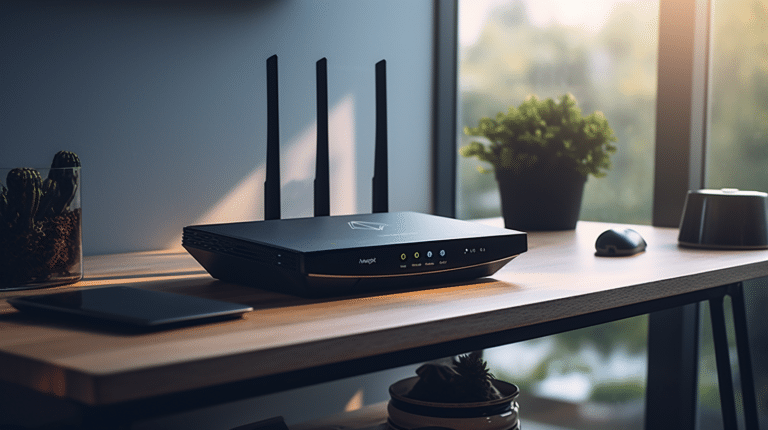In the world of internet technology, two terms that tend to cause confusion are Virtual Private Networks (VPNs) and Virtual Private Servers (VPS). Although they share some similarities in their names, they serve quite different purposes. A VPN is a service that allows users to securely and privately connect to the internet, while a VPS is a form of web hosting that allows users to host websites and applications on an isolated and scalable environment.
VPNs play an essential role in ensuring online privacy and security by encrypting data that passes through the network, making it difficult for unauthorized parties to monitor or intercept it. On the other hand, VPS functions as a powerful platform for hosting websites and applications, providing users with dedicated server resources and control without the expense of owning and maintaining physical hardware.
While both VPNs and VPSs offer valuable benefits in their respective domains, they are distinct technologies catering to different needs. It is important to understand their differences and applications to choose the right tools for your unique requirements.
Key Takeaways
- VPNs are used for online privacy and security, while VPSs are used for web hosting and application management
- Both technologies offer distinct advantages in their respective domains and cater to different needs
- Understanding the differences between VPN and VPS helps users make informed choices on the right tool for their requirements.
Understanding Virtual Private Network (VPN)
A Virtual Private Network (VPN) is a service and technology that helps maintain privacy and security while using the internet. VPNs are crucial in today’s digital world, providing a safe and secure environment for people to browse the web, protecting their data from prying eyes and hackers.
Working of a VPN
A VPN works by creating an encrypted tunnel between your device and the VPN server. This encrypted connection masks your IP address and allows you to browse the internet anonymously and securely. When you connect to a VPN, your data is sent through the encrypted tunnel, hiding it from anyone on the same public Wi-Fi network or even from your Internet Service Provider (ISP).
VPNs use a combination of encryption protocols, such as OpenVPN, WireGuard, or L2TP/IPsec, to ensure the security and confidentiality of your data. These protocols help prevent man-in-the-middle attacks and secure your connections from potential snoopers.
The Privacy and Security of a VPN
One of the primary benefits of using a VPN is the protection of your online privacy. VPNs mask your true IP address, allowing you to browse the web and access geo-restricted content without exposing your location or identity. This feature is especially useful for bypassing censorship in countries with strict internet regulations.
Moreover, VPNs ensure that your data is encrypted at all times. This means that even if someone intercepts your data, they won’t be able to read it due to the strong encryption. This is particularly important when connecting to public Wi-Fi networks, which can be vulnerable to cyberattacks.
Some leading VPN providers, such as ExpressVPN, boast advanced features like a kill switch, DNS leak protection, and strict no-logs policies to further enhance your privacy and security while using their services.
In summary, a VPN provides a safe and convenient way to browse the internet, guarding your privacy and safeguarding your data from potential threats. It’s a valuable tool for anyone concerned about their online activities and seeking a high level of security and anonymity.
Understanding Virtual Private Server (VPS)
A Virtual Private Server (VPS) is a type of hosting environment that provides a dedicated portion of a physical server to a user. It offers a more powerful and customizable solution compared to shared hosting, while being more cost-effective than a dedicated server. A VPS uses virtualization technology to create isolated virtual machines on the same physical server, in which each virtual machine acts as a standalone server with its own dedicated resources, such as RAM, CPU, and disk space.
Working of a Virtual Private Server
The key aspect of a VPS is the virtualization technology it utilizes. This technology allows a single physical server to be divided into multiple smaller virtual machines, each running its own operating system (OS) and hosting environment. For example, a single physical server might be split up into several virtual servers, each with its own RAM, disk space, and dedicated operating system. This approach enables users to work on their VPS environment with complete privacy and control, while still benefitting from the underlying shared hardware resources and network infrastructure.
Virtual Private Servers are created using a hypervisor, which is a software layer that resides on the host server to manage and allocate resources to the various virtual machines. The hypervisor ensures that each VPS has a dedicated and isolated environment with its own MAC address, IP address, RAM, and CPU, providing a reliable and efficient virtual server experience.
The Security and Customization of a VPS
A VPS offers a higher level of security compared to shared hosting, since each virtual machine operates in its own isolated environment. This separation of resources helps prevent one user from impacting another’s data or performance. Additionally, with root access, users have complete control over the virtual server and can customize its configurations, software installations, and security settings.
With a VPS, users have the flexibility to choose their preferred operating system, server software, and performance characteristics. They can optimize their virtual environment based on their specific needs, such as speed, storage, and network connectivity while still benefiting from the cost-effective nature of a shared physical server.
Overall, a Virtual Private Server is a versatile hosting solution that strikes the right balance between performance, customization, security, and cost, making it an ideal choice for a wide range of users and businesses.
Comparing VPN and VPS
Security Comparison: VPN vs VPS
A Virtual Private Network (VPN) is primarily focused on providing security and privacy for users while browsing the internet. VPN services encrypt your data, hiding your online activities and IP address from potential attackers or trackers 1. This ensures that your sensitive information remains confidential and you can explore the internet securely.
On the other hand, a Virtual Private Server (VPS) is more focused on hosting websites or applications. It provides an isolated environment, which means that other websites or users on the same server do not have access to your website’s resources 2. Although VPS is not directly designed for security, you can implement additional security measures to protect your data.
In short:
- VPN: Encryption and privacy features for internet browsing.
- VPS: Isolated environment for hosting websites, can be secured further.
Speed and Performance Comparison
Speed and performance are essential factors to consider when comparing VPNs and VPSs.
A VPN’s speed and performance primarily depend on the chosen provider, the server’s location, and your internet connection 3. Using a VPN may result in slower internet speeds, especially if you connect to a distant server or if your VPN provider does not have enough bandwidth to handle the traffic. Nonetheless, modern VPN services have improved their performance and offer fast, reliable connections.
In contrast, a VPS’s performance is dictated by the server resources allocated, such as CPU, RAM, and storage 4. These resources define the responsiveness and efficiency of your website or application. VPS performance also depends on the server’s hardware and network infrastructure provided by the hosting company. While you can upgrade your VPS resources to improve performance, it may come at an additional cost.
To summarize:
- VPN: Speed depends on provider, server location, and internet connection, may experience slowdowns.
- VPS: Performance based on allocated resources, upgradeable based on hosting plan.
In conclusion, VPNs and VPSs serve different purposes. VPNs are designed to protect user privacy and add a layer of security to online activities, while VPSs provide resources for hosting websites and applications in an isolated environment. Each technology has its own considerations for security, speed, and performance, so choosing between them comes down to your specific needs and requirements.
Choosing Between VPN and VPS
When deciding whether to use a VPN or VPS, it’s crucial to understand the differences between these two services and evaluate their potential advantages and disadvantages.
Price Comparison: VPN vs VPS
Looking at the costs associated with a VPN and a VPS can help you determine which service better suits your needs and budget.
- VPN: VPN services typically offer subscription-based pricing, with monthly plans ranging from as low as $3 to over $10, depending on the provider and features offered. Some providers also offer discounted rates for long-term subscriptions and free trials for a limited time.
- VPS: VPS hosting prices vary depending on the provider, resources allocated, and the level of customization and support. A basic VPS package can start at around $5 per month, while more powerful servers with managed support can cost $50 or even more per month.
Advantages and Disadvantages of VPN and VPS
VPN
Advantages:
- Provides online privacy by encrypting your internet connection
- Hides your IP address, making it difficult for others to track your online activities
- Allows access to geo-restricted content
- Generally easy to install and use
Disadvantages:
- Some VPN providers might keep logs, compromising user privacy
- Connection speeds might be slower due to encryption
- Free VPN services may have limited bandwidth and features
VPS
Advantages:
- Offers more control and customization options compared to traditional shared hosting
- Scalable resources based on your needs
- Better performance due to dedicated resources
Disadvantages:
- Requires technical knowledge for setup and management
- More expensive than shared hosting, but generally cheaper than a dedicated server
- Security risks if not properly configured and maintained
In conclusion, when choosing between a VPN and a VPS, consider factors like pricing, purpose, and your overall level of technical expertise. VPNs are best suited for those looking for enhanced online privacy and access to geo-restricted content, while VPSs are ideal for more advanced users who need better control and customization for their hosting environment.
Applications and Use Cases of VPN and VPS
VPN Use Cases
VPN, or Virtual Private Network, is a widely used technology that provides an encrypted tunnel for secure and private internet browsing. Some common applications and use cases for VPNs include:
- Accessing geographically restricted content: VPNs can bypass geographical restrictions imposed by content providers like Netflix, allowing users to access their favorite shows and movies regardless of their location.
- Protecting online activities: By hiding the user’s IP address, VPNs help maintain privacy and keep their online activities hidden from ISPs, governments, and hackers.
- Preventing ISP throttling: A VPN can help users avoid bandwidth throttling imposed by ISPs, ensuring uninterrupted and faster internet connections, especially during data-heavy activities like streaming or gaming.
- Securing public Wi-Fi: VPNs encrypt data transmitted over public Wi-Fi networks, protecting users against potential cyber threats and security breaches.
VPS Use Cases
VPS, or Virtual Private Server, is a powerful web hosting solution that delivers performance, flexibility, and security at an affordable cost. Here are some popular applications and use cases for VPS:
- Advanced web hosting: Unlike shared hosting, a VPS provides dedicated resources, allowing website owners to run resource-intensive applications, handle heavy traffic, and enjoy better performance.
- Running multiple websites: A VPS enables users to host multiple websites on a single server with separate configurations, making it an ideal choice for businesses and developers managing multiple projects.
- Virtual machines: VPS can be used as virtual machines running various operating systems (e.g., Windows) and applications, providing a cost-effective solution for testing, development, and remote desktop access.
- Scaling businesses: Thanks to its flexible resource allocation, a VPS can be easily scaled up or down to match a business’s growth and changing demands, without the need to invest in expensive hardware and technical resources.
Overall, VPNs and VPSs serve distinct purposes and offer a range of benefits to different users. VPNs ensure secure, private, and unrestricted internet access, while VPSs deliver powerful, flexible, and tailored web hosting solutions fit for various requirements and budgets.
Conclusion
In summary, a VPS (Virtual Private Server) and a VPN (Virtual Private Network) are two distinct technologies with different purposes. A VPS is primarily used for hosting websites and applications, providing users with their own dedicated resources and greater control over their server environment. On the other hand, a VPN is a service that encrypts and secures your internet connection, allowing you to maintain your privacy and access restricted content.
Both VPS and VPN solutions offer their unique set of benefits. A VPS is perfect for web developers, online businesses, and those with specific hosting requirements. It provides scalability, flexibility, and customization options that are not typically available with shared hosting plans. Furthermore, users can install custom software, configure server settings, and manage resources as needed to fulfill their specific needs.
Conversely, a VPN is designed to ensure data privacy and security for individuals and organizations. By encrypting internet traffic and masking IP addresses, a VPN protects users from surveillance, data breaches, and online censorship. VPNs are versatile tools that enhance browsing security, especially while using public Wi-Fi networks or accessing geo-restricted content.
Ultimately, choosing between a VPS and a VPN depends on your specific needs and objectives. While both technologies can play a significant role in your online experience, it’s essential to understand their differences and select the one that aligns with your requirements.
Frequently Asked Questions
What are the main differences between a VPS and a VPN?
A VPS (Virtual Private Server) is a virtualized server that offers dedicated resources on a shared physical server, allowing you to host websites, applications or other services.(source)
A VPN (Virtual Private Network) is a service that encrypts your internet connection to protect your privacy and secure your data during online activities.(source)
How do VPS and VPN affect internet privacy and security?
VPS primarily affects the performance and stability of your hosted services, without any direct impact on your internet privacy or security. VPN works to enhance internet privacy and security by encrypting your connection and masking your IP address, making it difficult for third parties to track your online activities.(source)
Which one should I choose for my business: VPS or VPN?
If your business requires hosting websites, applications or services, a VPS is the right choice. If your primary concern is internet privacy, security, and accessing geographically restricted content, then a VPN would be a better choice. These two technologies serve different purposes and can be used together as well, if needed.(source)
Can I use a VPS as a VPN? If so, how?
Yes, you can configure a VPS to act as a VPN by setting up appropriate software, such as OpenVPN or WireGuard, and configuring firewall rules. This allows you to create your own VPN through your VPS, but requires technical knowledge and is usually recommended for advanced users.(source)
Are there any drawbacks or limitations when using a VPS instead of a VPN?
Using a VPS as a VPN can be more time-consuming and complex to set up and maintain. It may also lack some features and optimizations found in specialized VPN services, such as multiple server locations, automatic server switching, and bandwidth-optimized routing. Furthermore, if you’re not securing your VPS properly, it may be vulnerable to attacks that can compromise your privacy and security.
What factors should be considered when comparing VPS and VPN options?
When comparing VPS options, consider factors such as price, resources offered, performance, and the level of control you have over the server. When evaluating VPN options, consider factors like encryption standards, server locations, speed, privacy policies, and the level of customer support provided. Base your decision on the specific needs and requirements of your business.






